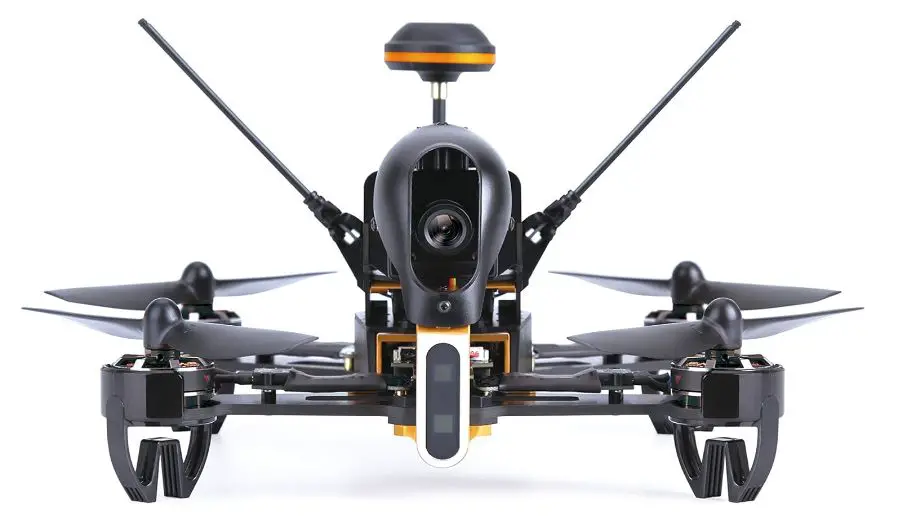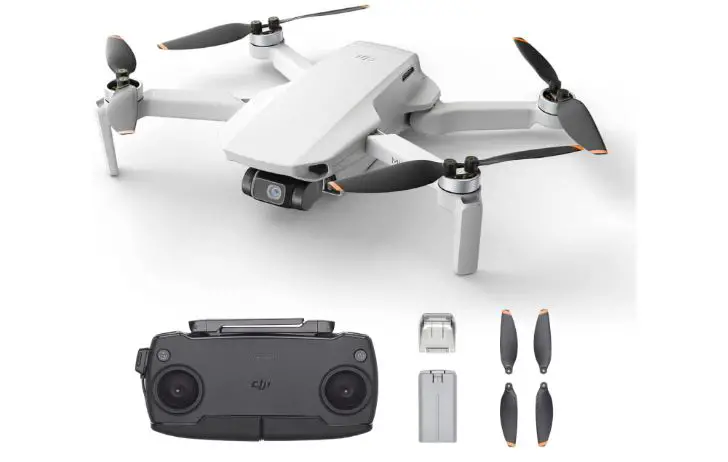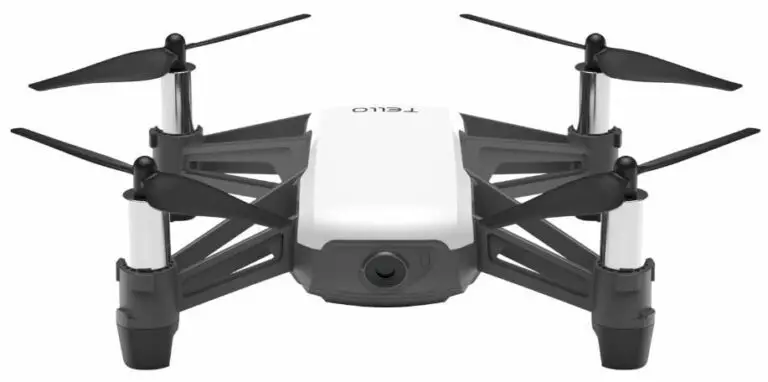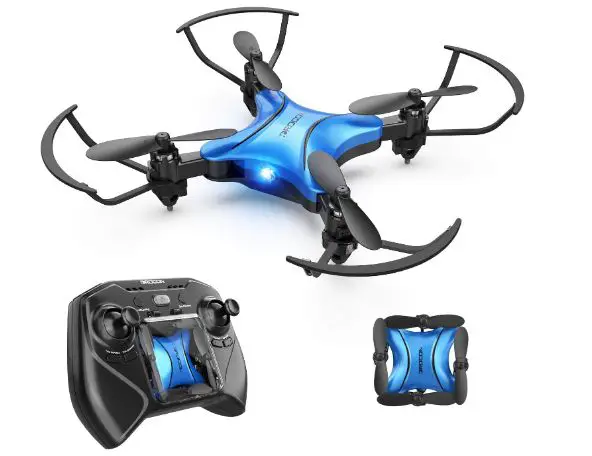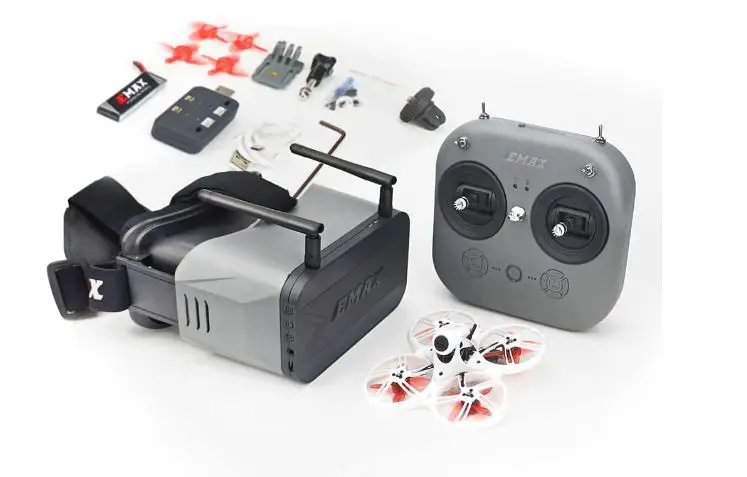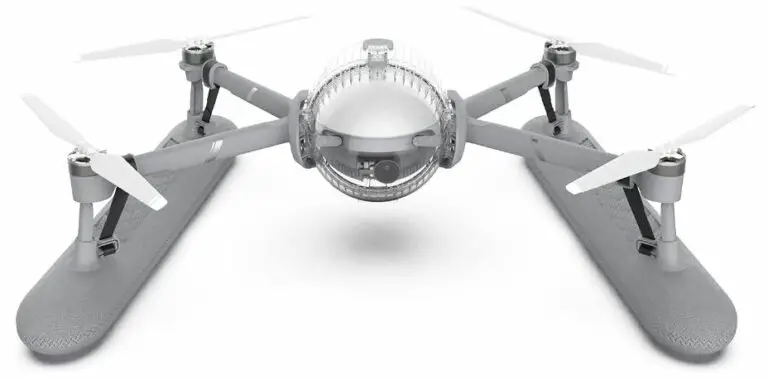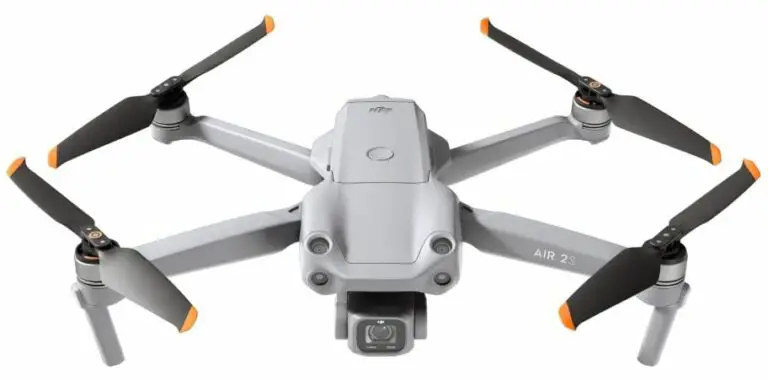DJI Drone Guide – Drones, Cameras, Robots, and more
Introduction
DJI, short for Da-Jiang Innovations Science and Technology Co., Ltd., is a leading manufacturer of unmanned aerial vehicles (UAVs), commonly known as drones, as well as camera systems, gimbals, robotics, and related accessories. Founded in 2006 by Frank Wang, DJI has become synonymous with innovation and excellence in the consumer and professional drone industry.
DJI’s headquarters are located in Shenzhen, China, with regional offices and research facilities worldwide. The company’s mission is to empower creativity and expand possibilities through cutting-edge technology, enabling users to capture aerial and ground-based imagery, videos, and data for a wide range of applications.
DJI’s product lineup includes a diverse range of drones tailored to different needs and skill levels, from beginner-friendly consumer drones to advanced professional-grade UAVs used in filmmaking, photography, surveying, mapping, agriculture, search and rescue, and other industries. The company’s drones are renowned for their reliability, performance, ease of use, and innovative features, making them popular choices among hobbyists, enthusiasts, and professionals alike.
In addition to drones, DJI manufactures a variety of camera systems, including handheld gimbals, action cameras, and professional cinema cameras, designed for capturing stabilized, high-quality footage in various environments and conditions. DJI’s camera systems are widely used in filmmaking, content creation, broadcasting, and other creative endeavors.
DJI is also actively involved in the development of robotics technology, with products such as educational robots, programmable drones, and remote-controlled vehicles designed to inspire learning, experimentation, and exploration in STEM (science, technology, engineering, and mathematics) fields.
With a strong commitment to innovation, quality, and customer satisfaction, DJI continues to push the boundaries of possibility and shape the future of aerial and ground-based imaging technology. Through ongoing research, development, and collaboration, DJI aims to empower users with the tools and solutions they need to unleash their creativity, explore new perspectives, and capture the world from above.
DJI Drone Series
DJI offers a diverse range of drone series tailored to different needs, preferences, and applications. Each series features unique characteristics, capabilities, and performance specifications designed to meet the demands of various users, from beginners to professionals. Here’s an overview of the main DJI drone series:
- Phantom Series:
- The Phantom series is DJI’s flagship line of consumer drones, known for their iconic design, advanced features, and versatility. The Phantom drones are equipped with high-quality cameras, intelligent flight modes, and stable flight performance, making them popular choices for aerial photography, videography, and recreational flying.
- Mavic Series:
- The Mavic series comprises compact and foldable drones that offer portability, convenience, and high-performance capabilities. Mavic drones are known for their foldable design, 4K cameras, obstacle avoidance systems, and long flight times. They are suitable for aerial photography, filmmaking, travel, and outdoor adventures.
- Inspire Series:
- The Inspire series is DJI’s professional-grade line of drones designed for filmmakers, cinematographers, and industrial users. Inspire drones feature a modular design, interchangeable cameras, retractable landing gear, and advanced flight capabilities. They are ideal for high-end aerial cinematography, inspection, mapping, and surveying applications.
- Matrice Series:
- The Matrice series consists of industrial-grade drones optimized for professional applications such as aerial inspection, mapping, surveying, and public safety. Matrice drones are equipped with customizable payloads, advanced flight control systems, and real-time data transmission capabilities. They are used in industries such as construction, agriculture, infrastructure, and emergency response.
- Mini Series:
- The Mini series offers compact and lightweight drones designed for beginners, travelers, and recreational users. Mini drones are easy to fly, portable, and affordable, making them suitable for capturing aerial photos and videos in various settings. They feature simplified controls, built-in safety features, and HD cameras for capturing stunning aerial footage.
- FPV Series:
- The FPV (First Person View) series is DJI’s lineup of immersive and high-speed racing drones designed for FPV enthusiasts and drone racing competitions. FPV drones feature first-person view goggles, high-performance motors, and agile flight characteristics for adrenaline-fueled racing experiences. They are popular among FPV hobbyists, racers, and freestyle pilots.
Each DJI drone series offers a unique combination of features, capabilities, and performance specifications to suit different user preferences, skill levels, and application requirements. Whether you’re a hobbyist, enthusiast, or professional user, DJI has a drone series to meet your aerial imaging and exploration needs.
DJI Camera Systems
DJI is renowned for its high-quality camera systems designed for aerial and ground-based imaging applications. From drones and handheld gimbals to professional cinema cameras, DJI offers a wide range of camera solutions tailored to various needs and preferences. Here’s an overview of the main DJI camera systems:
- Zenmuse Cameras:
- Zenmuse cameras are DJI’s line of professional-grade aerial cameras designed for use with DJI drones, including the Inspire, Matrice, and Phantom series. These cameras feature high-resolution sensors, advanced optics, and stabilized gimbal systems for capturing sharp, stable, and cinematic footage from the sky. Zenmuse cameras are available in various configurations, including RGB cameras for aerial photography, thermal cameras for thermal imaging, multispectral cameras for agricultural analysis, and zoom cameras for enhanced versatility.
- Osmo Cameras:
- Osmo cameras are DJI’s line of handheld gimbal cameras designed for capturing stabilized, smooth, and professional-quality footage on the ground. The Osmo series includes handheld gimbals with integrated cameras, such as the Osmo Pocket and Osmo Action, as well as modular gimbals compatible with smartphones and action cameras. Osmo cameras feature built-in stabilization technology, intelligent shooting modes, and compact, portable designs for capturing cinematic videos, vlogs, and selfies on the go.
- Ronin Cameras:
- Ronin cameras are DJI’s line of professional-grade cinema cameras designed for filmmakers, cinematographers, and content creators. The Ronin series includes high-end cinema cameras with large sensors, interchangeable lens mounts, and advanced recording capabilities for capturing cinematic-quality footage in various formats, resolutions, and frame rates. Ronin cameras are compatible with DJI’s Ronin series of handheld gimbals and stabilization systems, providing filmmakers with versatile tools for achieving smooth, steady, and professional-looking shots in any shooting environment.
DJI’s camera systems are known for their reliability, performance, and innovative features, making them popular choices among photographers, filmmakers, and professionals in various industries. Whether you’re capturing aerial photos and videos with a drone, stabilizing handheld footage with a gimbal, or shooting cinematic scenes with a cinema camera, DJI’s camera systems empower users to unleash their creativity and capture stunning imagery from new perspectives.
DJI Flight Controllers and Software
DJI’s flight controllers and software play a crucial role in controlling and managing the flight operations of its drones. These systems provide pilots with intuitive controls, intelligent flight modes, and advanced features to enhance flight performance, safety, and usability. Here’s an overview of DJI’s flight controllers and software:
- Flight Controllers:
- DJI’s flight controllers are the electronic brains of its drones, responsible for stabilizing the aircraft, controlling its flight maneuvers, and processing sensor data to maintain stability and responsiveness. Flight controllers utilize a combination of sensors, including gyroscopes, accelerometers, GPS, and barometers, to provide accurate positioning, navigation, and altitude control. DJI’s flight controllers are integrated into the drone’s hardware and firmware, providing real-time flight control and management capabilities.
- DJI Fly App:
- The DJI Fly app is a mobile application designed for controlling DJI’s consumer and prosumer drones, including the Mavic, Mini, and FPV series. The DJI Fly app provides pilots with a user-friendly interface for accessing flight controls, camera settings, and intelligent flight modes from their smartphone or tablet. The app features intuitive flight controls, automatic flight modes (such as QuickShots and ActiveTrack), live streaming, and editing tools for capturing and sharing aerial photos and videos.
- DJI GO App:
- The DJI GO app is a comprehensive mobile application used for controlling DJI’s professional-grade drones, including the Phantom, Inspire, and Matrice series. The DJI GO app offers advanced flight controls, camera settings, and mission planning tools for professional aerial photography, videography, mapping, and inspection applications. The app provides access to a wide range of flight modes, intelligent features (such as Waypoints and Point of Interest), live HD video streaming, and post-flight analysis tools.
- DJI Assistant Software:
- DJI Assistant software is desktop-based software used for configuring and updating DJI drones, remote controllers, and accessories. The DJI Assistant software allows users to customize flight parameters, calibrate sensors, update firmware, and troubleshoot issues with their drones. It provides advanced settings and options not available in the mobile apps, making it ideal for professional users and enthusiasts who require more control over their drone’s settings and performance.
DJI’s flight controllers and software are designed to provide users with a seamless and intuitive flying experience, whether they’re capturing aerial photos and videos, conducting inspections, or piloting drones for recreational purposes. With their advanced features, intelligent flight modes, and user-friendly interfaces, DJI’s flight controllers and software empower pilots to achieve their creative and operational goals with confidence and ease.
DJI Robotics and Accessories
In addition to drones and camera systems, DJI offers a range of robotics products and accessories designed to enhance functionality, versatility, and performance for various applications. Here’s an overview of DJI’s robotics products and accessories:
- RoboMaster Series:
- The RoboMaster series is DJI’s lineup of educational robots designed to inspire learning, creativity, and innovation in STEM (science, technology, engineering, and mathematics) fields. RoboMaster robots feature programmable platforms, modular designs, and interactive gameplay, enabling students to build, customize, and compete with their robots in robotics competitions and challenges. The RoboMaster S1 is a programmable robot tank designed for educational and entertainment purposes, offering a range of features including a gimbal-mounted camera, customizable chassis, and interactive game modes.
- Tello Series:
- The Tello series is DJI’s lineup of mini drones designed for beginners, students, and educators. Tello drones are lightweight, affordable, and easy to fly, making them ideal for learning basic drone piloting skills and exploring aerial photography and programming concepts. Tello drones feature a programmable interface, modular design, and built-in camera for capturing photos and videos from the sky. They are compatible with coding platforms such as Scratch and Python, enabling users to program custom flight maneuvers and perform aerial missions.
- DJI Goggles:
- DJI Goggles are immersive FPV (First Person View) goggles designed for experiencing the thrill of drone flight from a first-person perspective. DJI Goggles offer high-definition video streaming, low-latency transmission, and head tracking capabilities, providing pilots with a fully immersive and responsive flying experience. DJI Goggles are compatible with select DJI drones and camera systems, enabling users to fly and control their drones with precision and confidence.
- Remote Controllers:
- DJI remote controllers are designed to provide pilots with intuitive and ergonomic controls for operating DJI drones and camera systems. DJI offers a range of remote controllers tailored to different drone models and user preferences, including standard remote controllers with built-in displays, dedicated controllers for FPV racing drones, and customizable remote controllers with programmable buttons and ergonomic designs. Remote controllers feature integrated antennas, customizable buttons, and ergonomic designs for comfortable and precise control of the drone.
- Batteries and Chargers:
- DJI offers a variety of batteries and chargers for powering its drones, camera systems, and accessories. DJI batteries are designed to provide reliable power and long-lasting performance for extended flight times and shooting sessions. DJI chargers feature fast-charging capabilities, multiple charging ports, and intelligent charging algorithms for efficient and safe battery charging. DJI also offers battery management systems and accessories for storing, transporting, and maintaining drone batteries.
DJI’s robotics products and accessories are designed to complement its drones and camera systems, providing users with additional functionality, customization options, and capabilities for a wide range of applications. Whether you’re a student, educator, hobbyist, or professional user, DJI’s robotics products offer innovative solutions for learning, exploration, and creativity in robotics and technology.
DJI Services and Support
DJI offers a range of services and support options to enhance the user experience, ensure product reliability, and provide assistance to customers. Here’s an overview of DJI’s services and support offerings:
- DJI Care Refresh:
- DJI Care Refresh is an optional service plan that provides comprehensive coverage and protection for DJI drones against accidental damage, water damage, and flyaway incidents. With DJI Care Refresh, customers can enjoy peace of mind knowing that their drone investment is protected, and they can receive replacements or repairs for damaged drones at a reduced cost.
- DJI Care Enterprise:
- DJI Care Enterprise is a service plan tailored for commercial and enterprise customers who require extended coverage and support for their DJI drones. DJI Care Enterprise offers customized service options, priority support, and rapid response times for businesses and organizations operating fleets of drones for professional applications such as aerial inspection, mapping, and public safety.
- DJI Enterprise Shield:
- DJI Enterprise Shield is an enterprise-level service plan designed for businesses and organizations operating DJI drones for critical missions and operations. DJI Enterprise Shield provides comprehensive coverage, including accidental damage, water damage, and flyaway incidents, as well as dedicated support and repair services to minimize downtime and ensure mission readiness.
- DJI FlightHub:
- DJI FlightHub is a comprehensive flight management platform designed for enterprise users and fleet operators. FlightHub provides real-time monitoring, management, and control of DJI drones and payloads, allowing users to plan, execute, and analyze drone missions with ease. FlightHub offers features such as live streaming, mission planning, telemetry data analysis, and fleet tracking for managing large-scale drone operations efficiently.
- DJI Support Center:
- DJI’s Support Center provides customers with access to technical support, troubleshooting assistance, and product information for DJI drones, camera systems, and accessories. The Support Center offers online resources such as user manuals, firmware updates, tutorial videos, and FAQs to help customers troubleshoot issues and optimize their DJI products. Customers can also contact DJI’s customer support team directly for personalized assistance and guidance.
DJI’s services and support offerings are designed to provide customers with peace of mind, convenience, and confidence in using DJI products for their personal and professional needs. Whether you’re a recreational user, commercial operator, or enterprise customer, DJI’s services and support options are available to help you maximize the performance, reliability, and value of your DJI products.
DJI Safety and Regulations
DJI places a strong emphasis on safety and promotes responsible drone operation among its users. The company provides resources, guidelines, and technologies to help users operate drones safely and comply with regulatory requirements. Here’s an overview of DJI’s safety and regulations initiatives:
- Drone Safety Tips:
- DJI provides comprehensive drone safety tips and guidelines to educate users on safe flying practices, airspace regulations, and risk mitigation strategies. These tips cover pre-flight checks, flight planning, emergency procedures, and responsible behavior to ensure safe and lawful drone operation.
- Regulatory Compliance:
- DJI actively promotes compliance with local, national, and international regulations governing drone operation. The company provides resources and tools to help users understand and comply with regulatory requirements, including registration, licensing, airspace restrictions, and flight permissions.
- No-fly Zones:
- DJI incorporates no-fly zone (NFZ) restrictions into its drones and flight control software to prevent users from flying in restricted or sensitive airspace areas. NFZs include locations such as airports, military bases, and national parks where drone flights are prohibited or restricted for safety, security, or privacy reasons. DJI’s geofencing technology helps users avoid accidental violations of NFZs and promotes safe and legal drone operation.
- Geo System:
- DJI’s Geo System is a geospatial intelligence platform that provides users with real-time information about airspace restrictions, temporary flight restrictions (TFRs), and other regulatory requirements in their area. The Geo System helps users plan and execute drone flights safely and legally by providing up-to-date airspace information and guidance.
- Flight Safety Features:
- DJI drones are equipped with a range of flight safety features and technologies to enhance safety and prevent accidents during flight. These features include obstacle avoidance sensors, intelligent flight modes, return-to-home functionality, low battery warnings, and automatic landing procedures. DJI continuously innovates and improves its flight safety technologies to provide users with reliable and intuitive tools for safe and responsible drone operation.
- Educational Initiatives:
- DJI partners with educational institutions, government agencies, and industry organizations to promote drone safety education and awareness. The company offers educational resources, training programs, and outreach initiatives to teach users of all ages about the principles of safe flying, responsible piloting, and regulatory compliance.
By prioritizing safety and regulatory compliance, DJI aims to foster a culture of responsible drone operation and promote the safe integration of drones into airspace environments. Through education, technology, and collaboration, DJI empowers users to enjoy the benefits of drone technology while minimizing risks and ensuring the safety of themselves and others.
DJI Innovations and Future Developments
DJI, as a leading innovator in the drone industry, continually pushes the boundaries of technology to introduce new features, capabilities, and solutions that address evolving user needs and industry trends. Here are some key areas of innovation and future developments from DJI:
- AI and Automation:
- DJI is investing in artificial intelligence (AI) and automation technologies to enhance the intelligence and autonomy of its drones. Future DJI drones are likely to feature advanced AI-powered capabilities such as intelligent flight planning, autonomous navigation, and automated data analysis for tasks such as mapping, inspection, and surveillance.
- Environmental Sustainability:
- Environmental sustainability is a key focus area for DJI, with efforts to reduce the environmental impact of drone operations and promote eco-friendly practices. DJI is exploring initiatives such as electric-powered drones, renewable energy sources, and lightweight materials to minimize carbon emissions, noise pollution, and ecological footprint.
- Industry Partnerships:
- DJI collaborates with industry partners, research institutions, and government agencies to develop innovative solutions and applications for drones across various sectors. Through strategic partnerships and alliances, DJI aims to leverage expertise, resources, and market insights to drive innovation and accelerate the adoption of drone technology in industries such as agriculture, construction, infrastructure, and public safety.
- Emerging Technologies:
- DJI is exploring emerging technologies such as 5G connectivity, edge computing, and blockchain to enhance the capabilities and functionality of its drones. These technologies enable real-time data transmission, edge processing, and secure data storage, opening up new possibilities for advanced applications such as remote sensing, telepresence, and distributed aerial networks.
- Product Diversification:
- DJI is expanding its product portfolio beyond drones to include a broader range of hardware, software, and services for aerial and ground-based imaging applications. This includes handheld gimbals, action cameras, professional cinema cameras, educational robots, and software solutions for flight planning, data analysis, and mission management.
- Regulatory Compliance:
- DJI is committed to ensuring regulatory compliance and promoting safe and responsible drone operations. The company works closely with aviation authorities, standards organizations, and industry stakeholders to develop guidelines, best practices, and training programs for drone pilots and operators. DJI also integrates safety features and geofencing technology into its drones to prevent unauthorized flights and mitigate safety risks.
Overall, DJI continues to innovate and evolve its product offerings to meet the needs of users across various industries and applications. By staying at the forefront of technology trends and market demands, DJI aims to drive progress, facilitate positive change, and unlock new possibilities for drone technology in the future.
FAQs
What is DJI?
DJI (Dà-Jiāng Innovations) is a Chinese technology company known for manufacturing consumer and professional drones, gimbals, cameras, and related accessories.
Types of DJI Drones:
DJI offers a range of drones, including:
- Mavic Series (Mavic Air, Mavic 2, Mavic Mini)
- Phantom Series
- Inspire Series
- Matrice Series
- FPV Drones
- Mini Series
What are the key features of DJI drones?
DJI drones frequently have features like GPS, obstacle avoidance, great cameras, gimbal stabilization, intelligent flight modes, and long battery life.
What are the differences between consumer and professional DJI drones?
Consumer drones are more compact and user-friendly, while professional drones offer higher image quality, longer flight times, and advanced features for cinematography and industrial applications.
How do DJI drones navigate?
DJI drones use GPS, GLONASS, or other satellite systems for navigation. They also use various sensors and cameras for obstacle avoidance and accurate positioning.
What is the range of DJI drones?
The range varies between models, but many DJI drones can fly up to several miles from the remote controller.
DJI Cameras:
DJI Camera Options:
DJI manufactures a range of cameras and gimbals designed for use with their drones. These include the Zenmuse series for professional applications and integrated cameras on consumer drones.
What is the quality of DJI drone cameras?
DJI cameras are known for their high image and video quality. Professional models can shoot in 4K and even higher resolutions.
Can you use DJI cameras independently?
Some DJI cameras, like the Osmo Pocket, are designed for handheld use, allowing you to shoot stabilized video and photos without a drone.
DJI Robots:
What are DJI robots?
Additionally, DJI makes robots including the DJI Agras T20/T16, which is used for agricultural spraying, and the RoboMaster S1, a programmable instructional robot.
What can you do with DJI robots?
Precision farming and robotics teaching are two tasks that DJI robots are ideal for.
Conclusion
DJI’s journey from a startup in Shenzhen to a global technology giant is a testament to the transformative power of innovation. Their drones, cameras, gimbals, and robots have not only reshaped industries but have also given individuals the ability to explore and capture the world from new perspectives. As DJI continues to push the boundaries of what is possible in the realm of aerial technology, the future looks promising for both professionals and hobbyists alike, eager to take to the skies and see the world from above.

